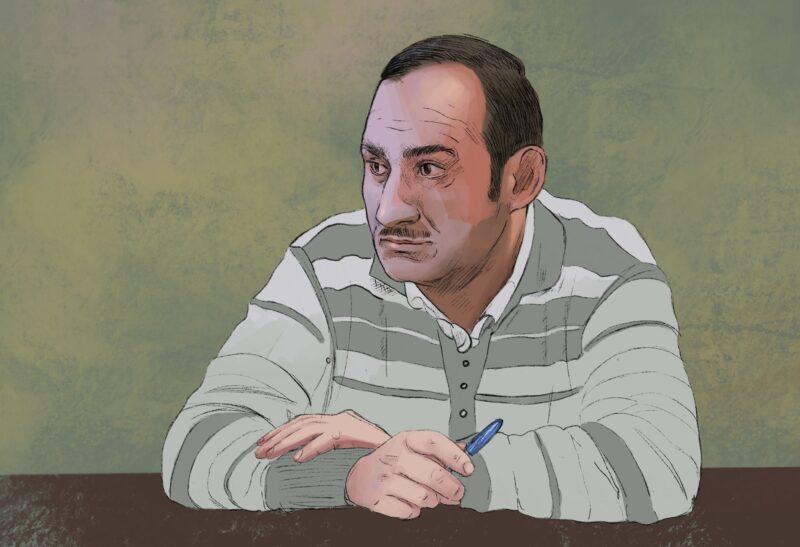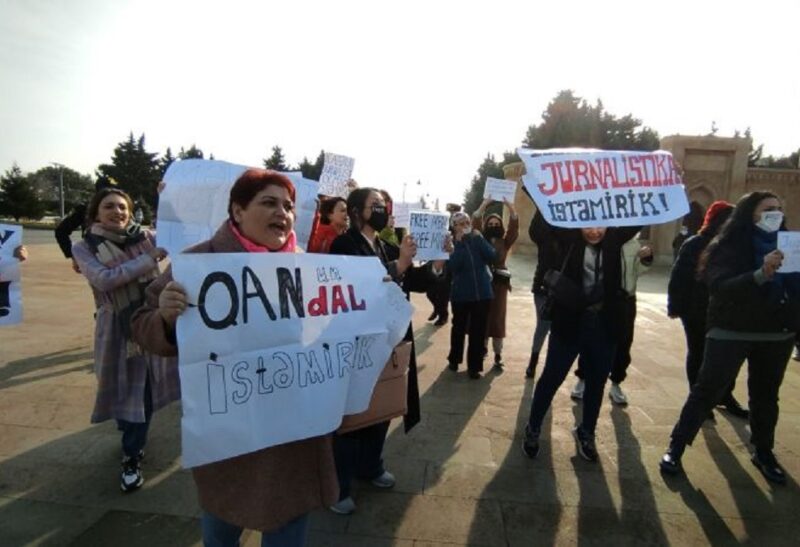

Over time Turks lost hope and confidence not only in the party they voted for in 2002 but also in many of the state institutions that the party they singlehandedly chose was gradually taking over. From the police to the media and to the courts- gradually the confidence faded and with the recent local elections and the vote fraud, looks like elections are too on the list of lost hopes. And so as everyone held their breath as the country’s main constitutional body was making its decision on the future status of Twitter, there was needless to say a countrywide relief that at least one state body is in its right state of mind.
In the meantime PM Erdogan continues to fight his “demons hidden under the bed”. Everyone has been against him, and the list of everyone is painstakingly long and dubious including prosecutors, judges, police officers, media, international organizations, Zionists, cats and that infamous interest lobby-turn-parallel state actors. Following almost a year of name-calling and so- called investigation, the one and only enemy (for now) was revealed- the Muslim cleric known as Fethullah Gulen living in self-imposed exile in Pennsylvania. Gulenists or the cemaat folks as they are known in common speak, are known to have followers in thepolice and the judiciary. Ironically, the two men used to be close, as Gulen is one of the founding members of the Ruling Justice and Development Party.
Enemy lines
But looks like Gulen wont be the only enemy for long. When the Constitutional Court made its final decision about unblocking Twitter on April 3, there was immediate criticism from adherents of PM Erdogan. The Prime Minister himself said he didn’t respect the decision and that he was going to challenge it as soon as opportunity arise. He has gone as far as to say that the country’s top judges have gone against Turkey’s
national values and interests.
A new ruling that came on Friday, April 11, sprung another wave of criticism- with the country’s Justice Minister Bekir Bozdag
noting
, “The regulation we have prepared is a regulation that conforms with the Constitution” adding that he could not understand which part of it was “
unconstitutional
” [TR]. “But of course we will abide by the court’s decision” added Bozdag to which the top judge, Hashim Kilich responded, “the court’s job is not to make
national rulings
but make decisions that are in accordance with the universal law.” Article 90 of Turkey’s constitution stipulates that the universal law principles will be considered when domestic laws contradict the universal rulings. The constitutional court has argued that by ruling in favor for the suggested law it would have been in violation with the notion of separation of powers.
The controversial law gave the justice ministry more powers over the appointment of judges and prosecutors. This was one of the first measures, Erdogan undertook when first recordings appeared online starting mid December of last year. On February 26, when Turkish President Gul signed into law the bill on the Supreme Board of Judges and Prosecutors (HSYK) he said there were at least 15 articles which needed revision as those were in violation of the Turkish constitution. The country’s main opposition party CHP disagreed completely with new bill and filed a suit at the Constitutional Court on March 2 (for a third time as previous two were rejected).
The court’s
recent decision
to unblock YouTube (April 10), was yet another sign for hope- the ruling concluded that the block on the popular vide sharing site was too broad and that the ban was to be lifted instead blocking specific 15 videos.
Speaking
at an event on Saturday, April 12, the Prime Minister threatened to “go after” Twitter exposing the company for tax evasion. He did not let Turkey’s Constitutional Court unmentioned. In his speech, he accused the court of “advocating the commercial law of international companies instead of defending the rights of its own country and its own people,” this said Erdogan “was interference with politics” repeating yet again his disrespect for the decision to unblock Twitter.
Another MP frustrated with the court’s ruling called for reducing the powers of the
tribunal
.
So ever since the corruption scandal hit the ruling party, the Prime Minister together with his party members gone on an aggressive spree. First came the reassignment of hundreds of judges, prosecutors, and the police officers who were either known or connected somehow to the graft investigation. Then came the proposed bill, not to mention more assertive talk about eliminating the Gulen’s “parallel state,” the Twitter and YouTube ban, elections with vote fraud and more recently the “disagreement” between the ruling party and the country’s Constitutional Court. In a tweet posted on April 12, AKP’s Ankara deputy Zelkif Kazdal
wrote
, “It looks like shutting down the Constitutional Court all together, would be a contribution to democracy rather than just lifting of its powers to cancel.” In a tweet posted a day before on April 11, the deputy
wrote
, “it has become a must to lift the powers of the Constitutional Court to annul for the sake of the national will.”
What no one from the ruling party seems to mention is that the Supreme Board of Judges and Prosecutors (HSYK) was quickly reshuffled anyway as soon as the law was signed and went into effect February. Almost a month into the court’s decision (in April), the ruling party
made the necessary
appointments within the HSYK- the head of the committee of inspectors, his aids, other inspectors and administrative staff were replaced. No one from the ruling party also mentions that it was the very same government, which allowed individuals in 2010 to appeal to the Constitutional Court in case of a violation of their rights by the state. So why a government which brought this into force would criticize the court doing its job?! Journalist and writer Taha Akyol,
believes
that it is because the government’s stance on these issues is of political nature.
Faik Oztrak from the CHP, and the deputy chairman in charge of the economy
said
the party made it clear from the moment the bill was suggested that it was not in accordance with the Constitution and that it threatened the independence of the judiciary and the rule of law. Those in support of the court’s decision agreed that the bill would have tightened the government’s grip on the judiciary.
The light on the outside of the bulb
The recent rulings of the Constitutional Court bring a new wave of hope to the country shaken by mass protests silenced violently, crackdown on media and the number of arrested and imprisoned journalists, innocent deaths including of a young Berkin Elvan and the Prime Minister’s unmoved reaction to this death not to mention a series of other critical laws suggested by Erdogan. Among these are the new law to
censor the Internet
and expand powers and immunities of Turkey’s spy agency. And most recently there are
the municipal elections
that were more about Erdogan and him securing his popularity, than anything else.
And nothing seems to move the ruling government. Even if more EU officials stump their feet and continue talking about Erdogan’s leadership gone rogue there is little evidence to suggest that it will change its direction.



